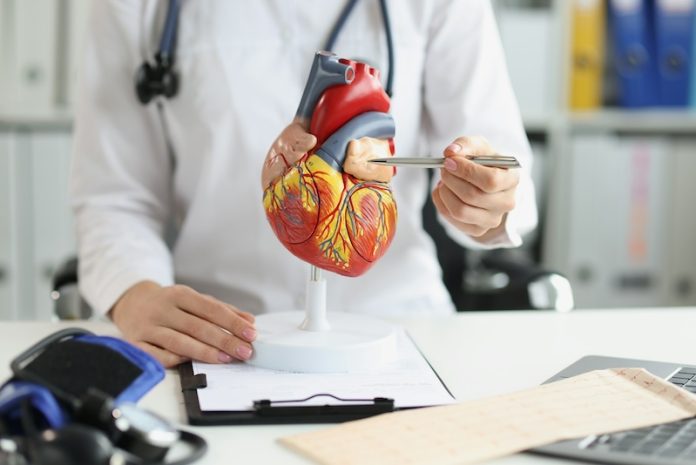
Heart inflammation, medically known as myocarditis, can be a serious condition that affects the heart muscle and its ability to function. This condition often goes unnoticed because its symptoms can be vague and not always directly linked to heart issues.
Understanding the common causes of heart inflammation can help individuals identify potential risks and seek timely treatment.
This review discusses the triggers and prevention strategies for myocarditis, aiming to make the information accessible and easy to understand.
Myocarditis typically occurs when the body’s immune system responds to an infection or some other trigger, leading to inflammation that damages the heart muscle.
This damage can affect the heart’s electrical system, disrupting the heart’s rhythm and ability to pump blood effectively. In severe cases, myocarditis can lead to heart failure, severe arrhythmias, or sudden death.
Infections: The most frequent cause of myocarditis is a viral infection. Various viruses, including Coxsackievirus, influenza (flu), adenovirus, and more recently highlighted, SARS-CoV-2 (the virus that causes COVID-19), have been linked to heart inflammation.
These viruses directly infect the heart muscle, leading the immune system to attack the virus but inadvertently causing inflammation in heart tissue as well.
Bacterial infections, although less common, can also cause myocarditis. Bacteria such as Staphylococcus, Streptococcus, and Lyme disease (caused by Borrelia burgdorferi transmitted through tick bites) can lead to this condition.
Similarly, fungal and parasitic infections, though relatively rare, can result in myocarditis, especially in individuals with weakened immune systems.
Autoimmune Conditions: Autoimmune disorders, where the body’s immune system mistakenly attacks healthy cells, can lead to myocarditis. Conditions like lupus, rheumatoid arthritis, and sarcoidosis are known to affect the heart and can cause inflammation.
Drugs and Toxins: Certain medications, including those used to treat cancer or autoimmune diseases, and exposure to toxins like alcohol, cocaine, and certain chemicals, can induce myocarditis.
These substances can trigger an immune response or direct toxicity in the heart, leading to inflammation.
Allergic Reactions: Rarely, myocarditis can occur as part of a severe allergic reaction known as hypersensitivity myocarditis. This reaction might be triggered by a drug allergy or an extreme environmental allergic reaction.
Vaccination: While very rare, vaccinations, like those for smallpox and, more recently noted, mRNA COVID-19 vaccines, have been associated with myocarditis, particularly in younger males.
However, the benefits of vaccination in preventing serious disease far outweigh this small risk. Research continues to evolve in this area, ensuring that the risk is monitored and managed.
The symptoms of myocarditis can vary but often include chest pain, fatigue, shortness of breath, and irregular heartbeats.
If myocarditis is suspected, it is crucial to seek medical attention promptly. Diagnosis usually involves a combination of blood tests, imaging studies like an MRI, and sometimes a biopsy of the heart muscle.
Preventing myocarditis involves managing risk factors where possible. This includes practicing good hygiene to avoid infections, monitoring and managing autoimmune diseases, and avoiding known toxins and allergens.
Vaccination against common viruses like influenza and COVID-19 can also reduce the risk of viral myocarditis.
In conclusion, while myocarditis can be a serious condition, understanding its causes can lead to better prevention and early detection.
By recognizing the symptoms and causes associated with heart inflammation, individuals can seek timely medical care, potentially reducing the impact of this condition. Continued research and education are crucial in improving outcomes for those affected by myocarditis.
If you care about coffee, please read studies that drinking coffee this way can help prevent stroke, heart disease, and drink coffee after breakfast, not before, for better blood sugar control.
For more information about nutrition, please see recent studies about natural supplement that could relieve anxiety, and results showing this common food oil in the U.S. can change genes in the brain.
Copyright © 2024 Knowridge Science Report. All rights reserved.



